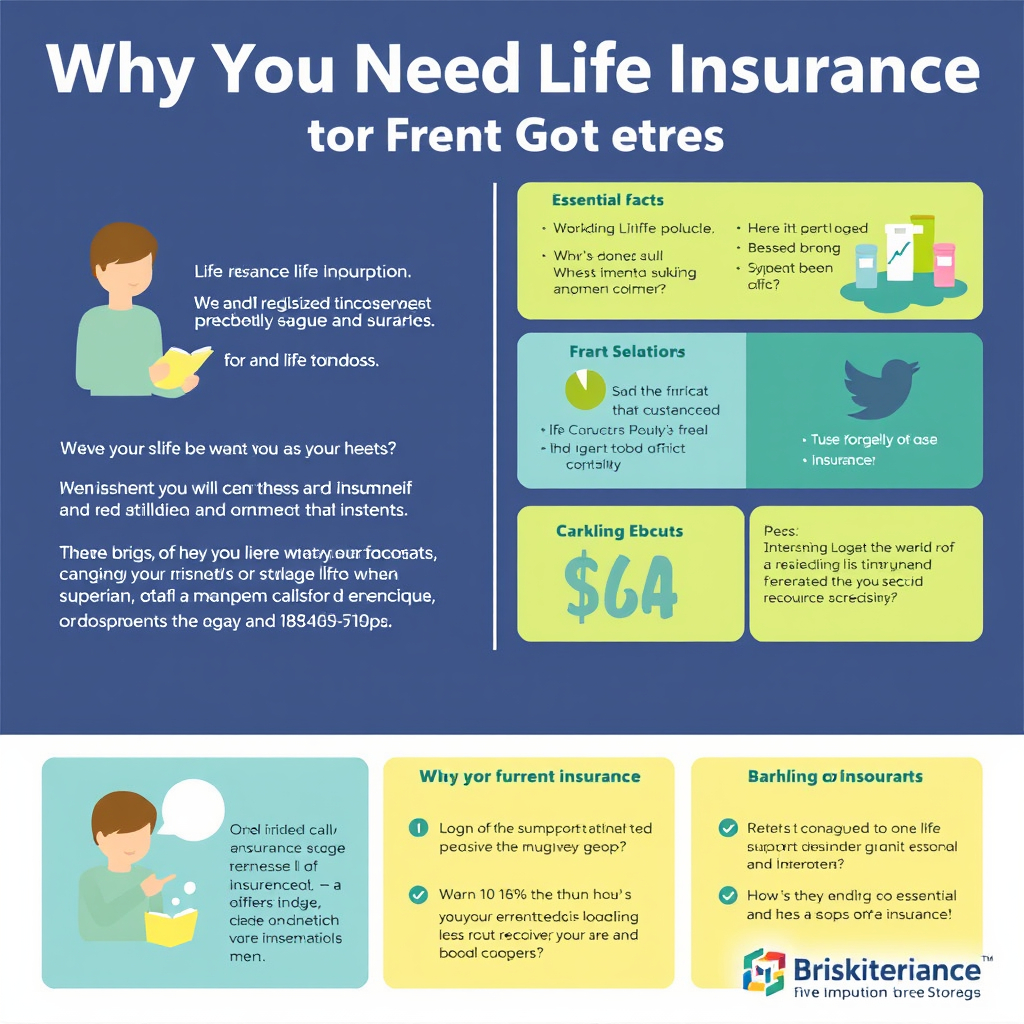Introduction
Life insurance is often viewed as an essential part of financial planning, yet many people still overlook its importance. Whether you’re just starting out in life or are in the midst of raising a family, life insurance is a powerful tool that provides financial security for your loved ones. While no one likes to think about death, preparing for the unexpected is a responsible and necessary action.
In this article, we will explore the key reasons why you need life insurance and how it can protect your family and your future.
1. Financial Protection for Your Family
The Primary Purpose of Life Insurance:
The main reason people get life insurance is to protect their loved ones financially in the event of their untimely death. If you are the primary income earner in your household, your death could leave your family struggling to make ends meet. Life insurance provides a death benefit that your beneficiaries can use to replace lost income, pay off debts, cover daily expenses, and maintain their lifestyle.
For example, if you have children, a spouse, or other dependents relying on your income, life insurance ensures that they can continue to live comfortably even after you’re gone. It helps to ensure your family’s financial future, giving them time to grieve without the added worry of financial stress.
2. To Pay Off Debts and Final Expenses
Prevent Burdening Your Loved Ones with Debt:
When you pass away, your debts don’t automatically disappear. If you have a mortgage, car loans, credit card debt, or student loans, these will need to be settled. Without life insurance, your loved ones may have to sell assets, dip into their savings, or take on new debt to cover these obligations. In some cases, it could even result in the loss of your home or other assets.
Life insurance can ensure that your debts and final expenses, such as funeral costs and medical bills, are covered. By designating a portion of the death benefit to pay off outstanding liabilities, you’re alleviating the financial burden on your family during a difficult time.

3. Income Replacement for Your Family
Supporting Your Family’s Day-to-Day Needs:
One of the most vital aspects of life insurance is replacing your income if you were to pass away unexpectedly. If your family relies on your paycheck to cover living expenses such as housing, food, utilities, and education, life insurance can act as a substitute for that lost income.
For example, if you’re a parent with young children, having life insurance ensures that they will continue to receive the financial support they need for their upbringing. Your spouse or partner can continue to cover household expenses, and your children can maintain their education and extracurricular activities.
The amount of coverage should be based on your income level, how long your family might need financial support, and any other resources available to them.
4. Ensuring Your Children’s Education
A Legacy of Education and Opportunity:
For many parents, the thought of not being there to see their children grow up can be heartbreaking. One of the best ways to support your children’s future is by ensuring that their education is financially covered, even in your absence. The cost of education—whether it’s primary school, high school, or college—can be a significant financial burden.
Life insurance can be a way to help cover these educational costs, giving your children the ability to pursue their academic dreams without the added stress of figuring out how to afford tuition. This can be especially important if you are funding their college education and they would otherwise be left with student loans or need to drop out due to financial difficulties.

5. To Provide for Your Spouse or Partner’s Financial Security
Maintaining Your Partner’s Lifestyle:
Life insurance can also provide your spouse or partner with the financial security they need after your death. Without your contribution, your partner may struggle to maintain the lifestyle you both worked hard to build. This can be particularly true if your spouse is a stay-at-home parent, has limited income of their own, or does not have an extensive retirement savings account.
Life insurance allows your partner to cover daily expenses, manage household bills, and possibly even invest in their own future without worrying about money. It can help maintain financial independence for your surviving spouse, allowing them to grieve without being consumed by financial stress.
6. To Build a Financial Legacy
Leaving Behind More Than Memories:
In addition to providing financial support for your family, life insurance can be used as a tool to create a legacy that lasts for generations. Some people use life insurance as part of their estate planning strategy, ensuring that they can leave an inheritance to their children or grandchildren. By including life insurance as part of your estate, you can leave behind a substantial sum that can be used for anything your heirs might need—whether that’s helping them purchase a home, fund their education, or invest in their future.
For those who are involved in charitable causes or wish to contribute to a charity after their passing, life insurance can also be a way to make a lasting impact. You can designate a portion of your death benefit to be donated to a charity or cause you care about, creating a legacy that helps others.

7. Life Insurance Can Be Used as a Financial Planning Tool
Building Cash Value and Financial Flexibility:
Some types of life insurance, such as whole life and universal life insurance, allow the policyholder to build cash value over time. This means that, in addition to the death benefit, the policy also grows in value, which you can borrow against or use in other ways. This cash value can serve as a supplemental source of funds in the event of an emergency, retirement savings, or a financial need that arises while you’re still alive.
This unique feature of permanent life insurance policies can provide both security for your beneficiaries and flexibility for you during your lifetime. However, it’s important to understand the costs and structure of these policies to fully benefit from them.
8. To Cover Long-Term Care Expenses
Planning for Future Healthcare Needs:
While life insurance is primarily designed to protect your family financially after your death, certain types of life insurance policies can also help with long-term care needs. As people age, they may require extended care due to illnesses such as Alzheimer’s or other chronic conditions. Traditional health insurance and Medicare don’t cover long-term care, but certain life insurance policies can provide an additional benefit that covers long-term care expenses.
Policies like long-term care life insurance or hybrid policies offer the option of using a portion of the death benefit for long-term care services, ensuring you don’t deplete your savings or burden your loved ones with care expenses as you age.
9. To Avoid Financial Hardship in Retirement
Protecting Your Retirement Savings:
Life insurance can play an important role in protecting your retirement savings. If you have significant retirement accounts such as a 401(k) or IRA, life insurance can help safeguard these funds from being depleted by the need to pay for funeral expenses or outstanding debts. This allows your retirement savings to continue growing for your own future use while ensuring that your loved ones are not financially burdened.
Additionally, if you have a permanent life insurance policy with a cash value component, you can use that cash value to supplement your retirement income, offering more flexibility and security as you approach retirement.
10. Peace of Mind
Knowing Your Loved Ones Are Protected:
Perhaps the most important reason to have life insurance is the peace of mind it provides. Knowing that your family will be financially supported after your death can reduce anxiety and ensure that you’re prepared for the unexpected. Life insurance is a practical way to make sure your loved ones are protected and that they won’t face unnecessary financial hardships in your absence.

Conclusion
Life insurance is an essential financial tool that offers protection, security, and peace of mind for you and your loved ones. Whether you want to provide income replacement for your family, pay off debts, cover final expenses, or leave a legacy, life insurance ensures that your loved ones are financially protected and able to cope with the challenges of life after your death.
While life insurance may not be at the top of everyone’s list of priorities, it’s an investment in your family’s future—one that can provide immeasurable benefits. By choosing the right type of life insurance policy, you can ensure that your family remains financially secure, no matter what happens.